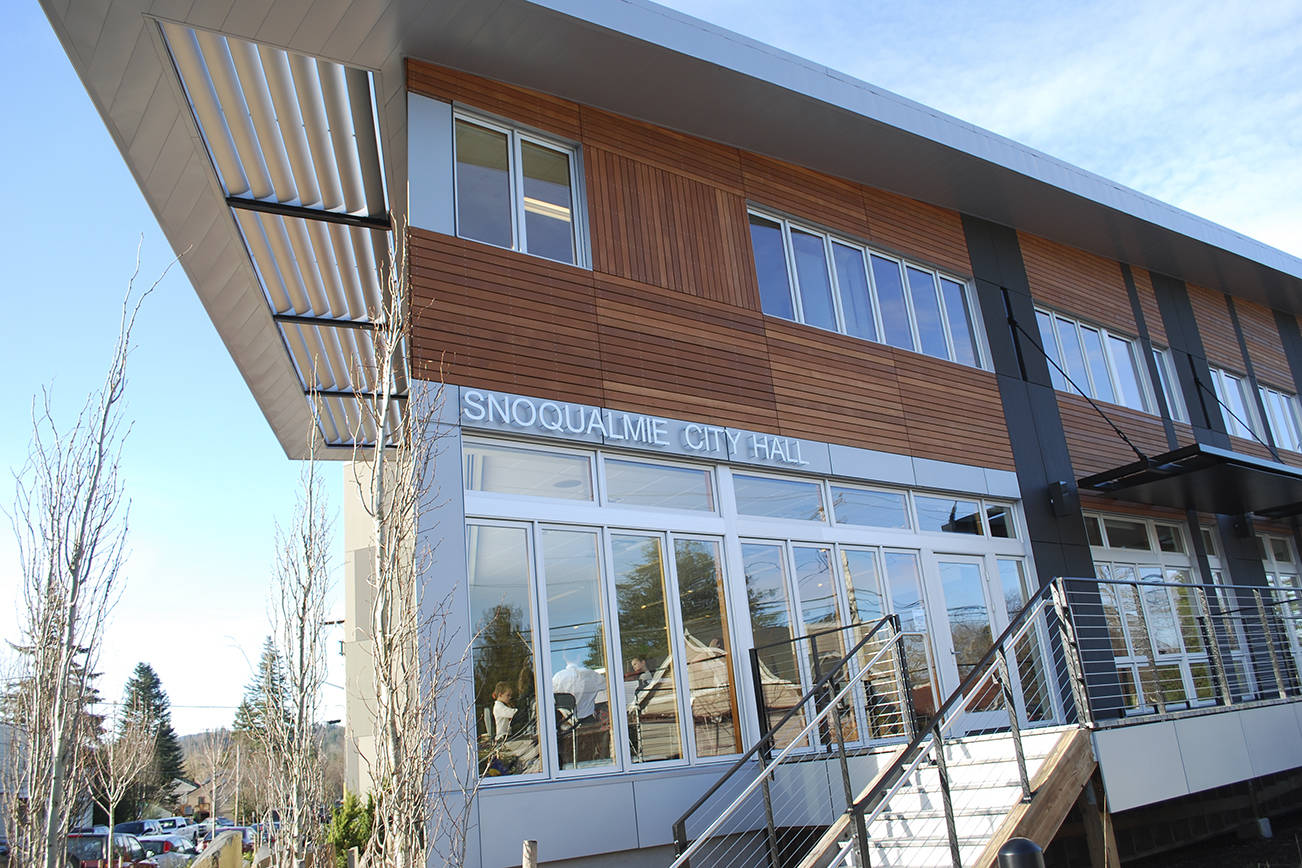The Snoqualmie City Council recently placed limitations on the amount of time spent by the city each month on records requests, in addition to updating prices for electronic copies of documents.
The Finance and Administration Committee determined a limitation of 16 hours per month for the public records officer and 8 hours per month for department-designated staff at a June 4 regular committee meeting.
The new rules were adopted for the city’s public records request policies and billing methods in a 4-2 vote by council on July 22. The city said limiting staff time is partially due to the city’s vast increase in the volume and complexity of public records requests since 2017.
Snoqualmie received 37 requests in 2016 and 44 in 2017, followed by a spike of 144 requests in 2018. There have been 74 requests so far in 2019, according to a staff report by city attorney Bob Sterbank.
Request logs from 2018 and 2019 show the date received and total number of hours spent on each public records request. The requester’s name and summary of documents needed are also indicated in the two spreadsheets.
The log from 2018 concludes with a total estimate of 724 staff hours spent fulfilling requests. City Attorney Bob Sterbank recorded 41.5 hours helping with record requests.
So far in 2019, only 161 hours had been logged as of May 30. Four of those requests were carried over from 2018.
Much of the information and requests are related to permits, audit reports, construction estimates, payments and invoices, bid documents, legal expenditures and data from geographic information systems (GIS). A majority of the requests pertain to communications via text, calling and email.
City clerk Jodi Warren works as the Snoqualmie records officer to coordinate and fulfill the records requests. The most common public records requests are for emails and it takes time to redact sensitive information, she said.
Warren listed minutes, agendas, ordinances, resolutions, contracts and agreements as just some of the documents already available on the city website. Many requesters ask for the readily accessible public documents anyway.
While the logs span more than 20 pages, it is not a new person with every record request. There are four primary requesters that dominate the document log.
In 2018, Paul Silva of Kirkland sent 19 separate record requests to the city of Snoqualmie, each related to building permits. Staff recorded 26 hours spent in total on his requests.
The same year, Kelly Spratt submitted 17 requests, totalling 133 hours logged by staff. Many of her requests asked for incoming and outgoing text messages and emails, although others include records that are easier to access.
Anna Sotelo requested 227 hours worth of information in 2018. She submitted 16 requests throughout the year, mainly asking for dated documents or asking questions about council meetings and decisions. One of Sotelo’s requests logged 147 hours in 2018 and an additional 16 hours in 2019.
“Most of them are things that should be on our website,” Sotelo said. She began requesting records two years ago after realizing that the city was not providing enough public documents on the city of Snoqualmie website.
Councilmember Peggy Shepard requested records nine times, logging 17.5 staff hours. Her requests largely focused on warrants, vouchers and supporting documentation from council meetings. Shepard has not provided a comment at this time.
Richard Scheel, Snoqualmie resident and spouse to Shepard, explained at the July 22 meeting that the scope of requests in recent years have increased due to distrust by citizens.
“It is important to respond to that with openness, not by closing off access to public records,” Scheel said.
Requested documents from 2019 include three requests carried over from the previous year, one from Sotelo and two from Spratt.
The first half of 2019 has received zero requests from both Sotelo and Shepard. Silva has submitted 12 requests so far, each only taking one hour to fulfill. Of the 161 hours logged since May 30, Spratt is responsible for five requests and 24 hours of staff time.
According to a council staff report from June 28, the increase in public record requests corresponds with the formation of a group called “Snoqualmie 1st.” Staff believes the influx in complexity of requests began as a result of this organization.
“It has nothing to do with Snoqualmie 1st,” Leslie Sheppard said. She was one of five candidates running for city council two years ago when the group was created. The small organization aimed to create transparency within the government and listen to the concerns of residents, she explained.
Sheppard (no relation to Peggy Shepard) said the addition of a controversial hotel upset residents and violated city laws. The community felt there was a lack of transparency within the government and began using more public record requests to find information.


